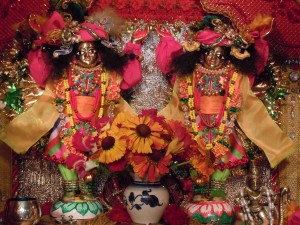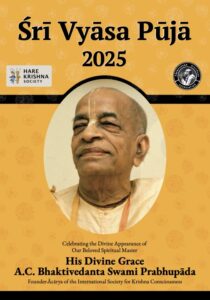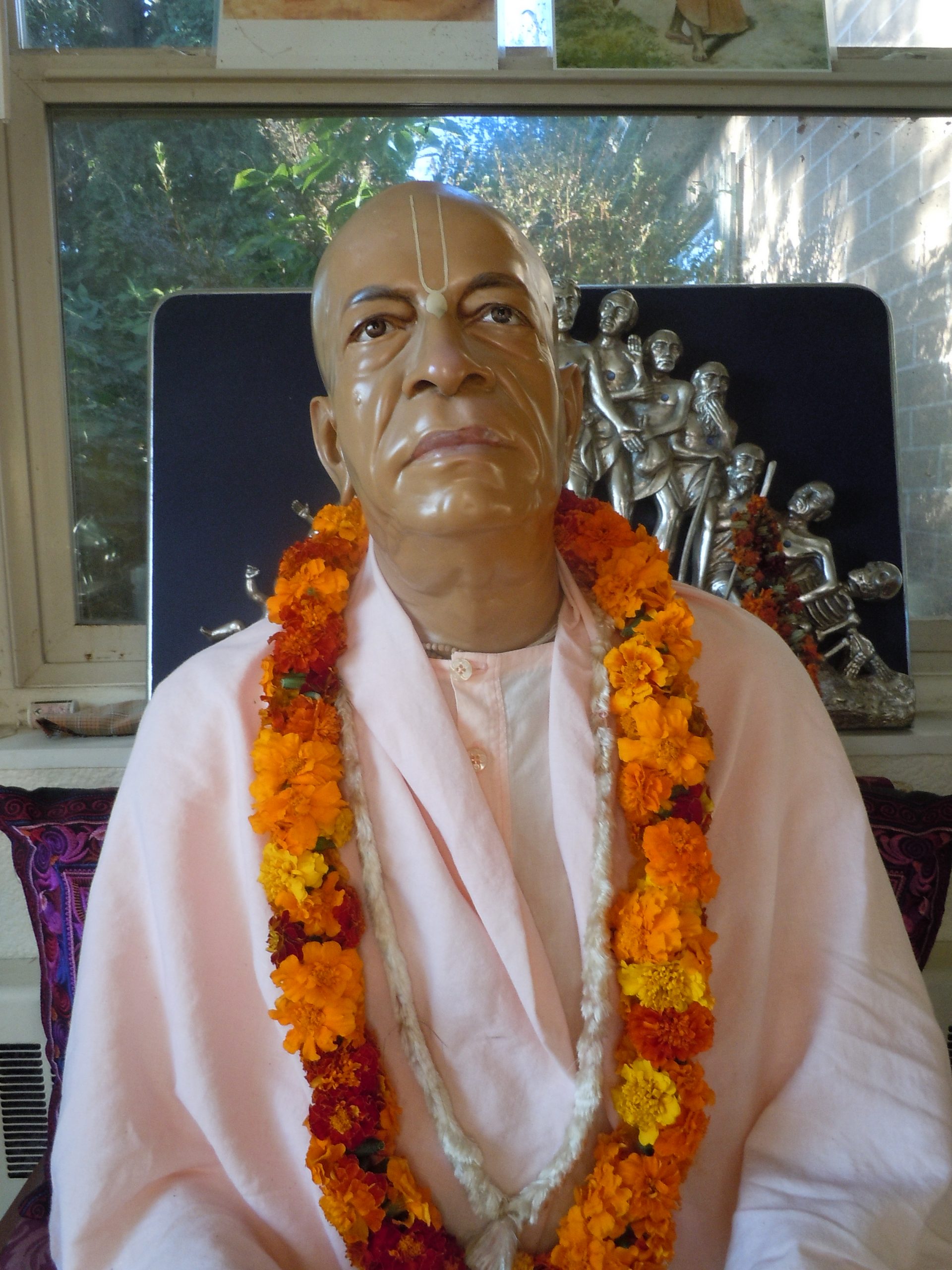SB 3.28.33—With devotion steeped in love and affection, the yogī should meditate within the core of his heart upon the laughter of Lord Viṣṇu. The laughter of Viṣṇu is so captivating that it can be easily meditated upon. When the Supreme Lord is laughing, one can see His small teeth, which resemble jasmine buds rendered rosy by the splendor of His lips. Once devoting his mind to this, theyogī should no longer desire to see anything else.
PURPORT
It is recommended that the yogī visualize the laughter of theLord after studying His smile very carefully. These particular descriptions of meditation on the smile, laughter, face, lips and teeth all indicate conclusively that God is not impersonal. It is described herein that one should meditate on the laughter or smiling of Viṣṇu. There is no other activity that can completely cleanse the heart of the devotee. The exceptional beauty of the laughter of Lord Viṣṇuis that when He smiles His small teeth, which resemble the buds of jasmine flowers, at once become reddish, reflecting His rosy lips. If the yogī is able to place the beautiful face of the Lord in the core of his heart, he will be completely satisfied. In other words, when one is absorbed in seeing the beauty of the Lord within himself, the material attraction can no longer disturb him.
Vrn SB 1.7.23 Sept 20 1976
But we are so rascal that we do not take advice of Kṛṣṇa, we manufacture our own ways, the suffering goes on.Mām eva ye prapadyante māyām etāṁ taranti. This is māyā.He’s thinking that he’ll make his own plan and be happy. That will never be possible. The only plan you have to accept—what is that? Sarva–dharmān parityajya mām ekaṁ śaraṇam[Bg. 18.66]. That is the only plan. You have to get yourself relieved from all other engagements. Simply engage yourself…Not immediately. First of all, you must ready: “Kṛṣṇa, from this day, I am now ready. Whatever You’ll say, I’ll do.” That’s… Immediately you become liberated. Liberated. How liberated? Liberation is achieved after so many years tapasya? No. Immediately. As soon as you surrender to Kṛṣṇa. How? Kṛṣṇasays, ahaṁ tvāṁ sarva-pāpebhyo mokṣayiṣyāmi. If we are sincerely surrendering to Kṛṣṇa, immediately… Our, thismaterial sufferings, why? Due to our sinful activities.Sinful activities mean anything you do without any purpose to serve to Kṛṣṇa, that is sinful. That is sinful.Not that “In the material calculation this is very goodwork, the opening of hospital or this or that, very goodwork. And Deity worship and going to the temple is bogus.” You may think like that. But that, your opening of hospital is sinful. That is going on nowadays. One becomes very great philanthropist, rejecting… They say, “What is the use of this temple worship?” The daridra–nārāyaṇa–sevā. Nārāyaṇa has now become daridra. FormerlyNārāyaṇa was husband of the goddess of fortune. And now he has become daridra. So serve this Nārāyaṇa. This, they’re manufacturing, concoction. This is not… That means sinful activities. Because he has manufactured something, that is sinful. Therefore Kṛṣṇa says plainly that “You rascal, you give up any other engagement, even if you think it is very pious activity, very philanthropic. You give up.” Sarva–dharmān.Sarva means whatever you think pious and whatever you think impious, both of them should be given up. Because there are two kinds of activities: pious or impious. And sarva includes pious and impious.
So you have to give up everything. Simply you have to become ready. “My Lord, I am now fully surrendered. Whatever You ask me, I shall do it.” Then you are liberated person. Īhā yasya harer dāsye. That is Rūpa Gosvāmī’s instruction. Anyone who has determined like this that “I shall simply serve Kṛṣṇa. That’s all.” Īhā yasya harer dāsyekarmaṇā manasā girā: by work, by mind, by body, or by words. One has decided like that, nikhilāsv apy avasthāsujīvan–muktaḥ sa ucyate: in any condition of life, he’s liberated. Any condition of life. Because that īhā yasyaharer dāsye. Simply he’s thinking of how to serve Kṛṣṇa, how to serve Kṛṣṇa. He is liberated. So what is there wrong or what is there difficulty? If you simply think of man-manāḥ,always think of Kṛṣṇa: “What shall I do?” “Oh, yes. My representative [guru] is there. You take permission from him and do it.” Where is the difficulty? There’s no difficulty. But because we are mūḍha, narādhamas, we are manufacturing and suffering.
Thank you very much. (end)




